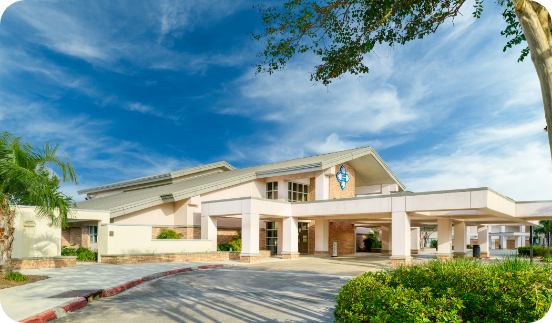Genetics
Genetics education and risk assessment is open and accepting referrals.
Services Provided:
- Follow-up written summary of the genetics education session to referring
physician/provider
- Genetic testing
- Personalized cancer prevention care plan
- Post-test education
- Pre-testing education
Click here to take your risk assessment quiz.
Genetics education sessions are provided by a licensed genetics educator
via tele-health or in-person exclusively through Memorial Genetics.
Genetic testing is used to identify or rule out a specific genetic or chromosomal
condition. In many cases, genetic testing is used to confirm a diagnosis
when a particular condition is suspected based on physical signs and symptoms
or family history. The results of this testing can influence a patient’s
choices about health care or the management or treatment of a disorder.
How Genetic Testing Helps Identify Your Breast Cancer Risks
Breast cancer is the most common cancer among women in the United States,
accounting for nearly 30% of all newly diagnosed cases.
- Every 2 minutes, a new case of breast cancer is diagnosed in the U.S.
- There are more than 6 million breast cancer survivors worldwide, 3.8 million
of those are in the U.S.
- Approximately 5-10% of breast cancers can be linked to known genetic mutations
inherited from one’s mother or father.
- Improvements in early detection and screening have led to a 40% decline
in breast cancer deaths in the U.S.
Genetic and molecular tests have the potential to not only provide patients
with personalized diagnostic information, but also allow for specifically
tailored treatment plans, thus limiting resistance and toxicity. They
also supply prognostic information about cancer in its early stages, thereby
determining whether aggressive, early management is necessary.
The genetic and molecular test cover areas included, but not limited to,
BRCA, Mammoprint, Oncotype, ER/PR, Her2.
What is a risk assessment?
A risk assessment is a screening tool that uses a series of questions allowing
healthcare teams to estimate a woman’s risk of developing breast
cancer in her lifetime.
How can I get my risk assessment?
Complete a risk assessment here. Upon completion, your score will be calculated, and results will be confidentially
sent to our nurse navigator. You will then be contacted with the results.
If you are found to be high risk, an appointment can be scheduled in the
High-Risk Breast Clinic at Lake Charles Memorial Hospital for Women.













